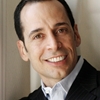We all know that we need some degree of smarts to be a successful marketer.
The measure of this “smarts” is IQ, or intelligence quotient. IQ is the ratio of your mental age to your chronological age. You are born with your IQ, and it stays relatively the same throughout life. So it is pretty hard to become an Einstein if you were born with an average IQ.
People often associate someone's IQ with his or her ability to be successful. And while important to your success, IQ becomes less important as you grow in your career.
Sure, for your initial job, being an expert in e-metrics or a highly creative marketing copywriter is important. But that value wanes as you start to manage people, build relationships and advance up the proverbial corporate ladder.
You can be a member of MENSA, but success may still elude you. There are other ingredients that are essential to ensuring your success.
That is where EQ comes in.
According to Daniel Goleman, whose book Emotional Intelligence launched the concept, "non-cognitive factors account for about 80% of adult success." And key among those non-cognitive factors is emotional intelligence, or EQ. Emotional intelligence is defined by Robert Cooper and Ayman Sawaf in their book, Executive EQ, as "the ability to sense, understand, and effectively apply the power and acumen of emotions as a source of human energy, information, connection and influence."
Your EQ is really about soft skills. It means being able to relate to others and make things happen. It means getting product marketing and the ad agency to agree on the direction of a TV ad or motivating a multidisciplinary team to successfully launch a new product or inspiring the entire organization to participate in a new customer-focus campaign.
Susan Dunn (“The EQ Coach”) says, “The higher up you go in your career, the more EQ matters.”
Jeffrey Garten, Dean of the Yale School of Management, concurs. He learned from his extensive research with senior leaders that “communications skills are among the most important things for a corporate leader to have.”
According to Dunn, communications skills are one of the critical EQ competencies. She says, “Eventually you'll find yourself on a playing field where everyone has technical skills and expertise as good as yours, and then what makes you stand out?
“It's how you handle yourself and others, your leadership and communication skills, integrity, authenticity, intentionality, change-proficiency and other Emotional Intelligence competencies.”
The great news about EQ is that you can improve it. Unlike IQ, you can work on different EQ competencies so that you can increase your EQ score.
Understanding your current EQ score and putting a professional development plan in place to build on weak areas will help you tremendously as you progress in your career. Dunn says, “We're finding more and more that ‘soft' skills bring ‘hard' results in the business world.”
But to succeed in business today, high EQ and IQ combined is not enough. You also need to think about your RQ.
So what is RQ?
The term RQ was coined by Dr. Charles Fombrun, Professor Emeritus of the Stern School at NYU and the founder of the Reputation Institute.
Dr. Fombrun has done extensive research with companies around the world to understand the roles that their reputations play in their success. He has learned that the most successful companies, and those that can endure great challenges, all have one thing in common: strong reputations, or high RQ.
But RQ is not just for companies. It is also the all-important “Q” that we as marketers can combine with our IQ and EQ to ensure career success.
Tom Peters says, “We all have brands worthy of remark.” And building your personal brand enables you make it to the top of the corporate ladder, skipping a few rungs, because to succeed in today's dynamic marketplace you need to be visible and be known for something.
You must stand out from myriad others with similar skills and experience. And you must use what sets you apart as the foundation for excelling in your career.
As a marketer, you are completely aware of the importance of differentiation for the products and services you promote. Now is the time to start applying those same concepts to your career.
You need only look around you to see how those that stand out by using their unique and authentic promises of value are also those who are expanding their career success.
Like with EQ, your RQ can be improved with effort. Understanding, building and communicating your personal brand will help you increase your RQ—or brand value—and your ability to take control of your marketing career.
Building your RQ is a three-step process:
- Extract. Unearth your unique promise of value. Learn what separates you from your peers and is compelling to those who need to know about you so that you can expand your success.
- Express. Build a communications plan to express your brand. Identify the tools that you will use to communicate your unique promise of value so that you will become consistently and constantly visible to those around you.
- Exude. Manage your brand environment. From your desk or office to your voice-mail greeting, you must ensure that everything that surrounds you sends the same on-brand message.
So which “Q” do you need to be successful? You need all three.
Look at the most successful marketers around you, and you will see that they exude a winning combination of IQ, EQ and RQ.




